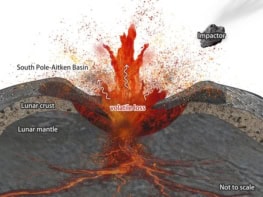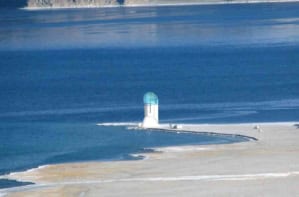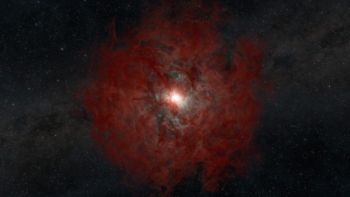NASA announced today that Lunar Prospector has confirmed the presence of water on the Moon.
Rumours that Lunar Prospector – NASA’s first lunar mission in twenty five years – had confirmed the existence of water ice had captivated the space science community since the beginning of February.
Lunar Prospector was not originally designed to search for water on the Moon. Four years ago, however, a radar experiment on the Clementine spacecraft recorded an echo that was consistent with the presence of water ice. Lunar Prospector was quickly modified to include experiments to search for water.
Researchers working on the project have now publicly stated that a neutron spectrometer on the craft has discovered between 10 and 300 million metric tons of water at the location suggested by Clementine. Scientists are naturally excited at the results. Sarah Dunkin, a researcher working on the Clementine data at University College London, says: “It will herald one of the most important and exciting discoveries since the days of Apollo.”
The findings were presented today at press conference at Ames Research Center, California, and have renewed interest in astronauts returning to Moon. The presence of water would make a moonbase feasible and practicable for the first time. It would also dramatically reduce the costs of supplying outposts such as the International Space Station or manned trips to Mars.
One of the harder questions to answer will be: how did the water get there? Most scientists believe that the only possible explanation is cometary bombardment. Previously it was thought that any ice left on the surface would have been vaporised on impact. According to Dave Heather, also of UCL: ” Now that its presence has been confirmed, refinements can be made to models of cometary impact and solar system evolution, enhancing our knowledge in these fields.”
The discovery also raises the interesting question of who owns the water. In 1979 five nations signed a Moon Treaty stating that the Moon is a common heritage for all mankind and its resources cannot be claimed by any one nation. However, the US did not sign the agreement.



